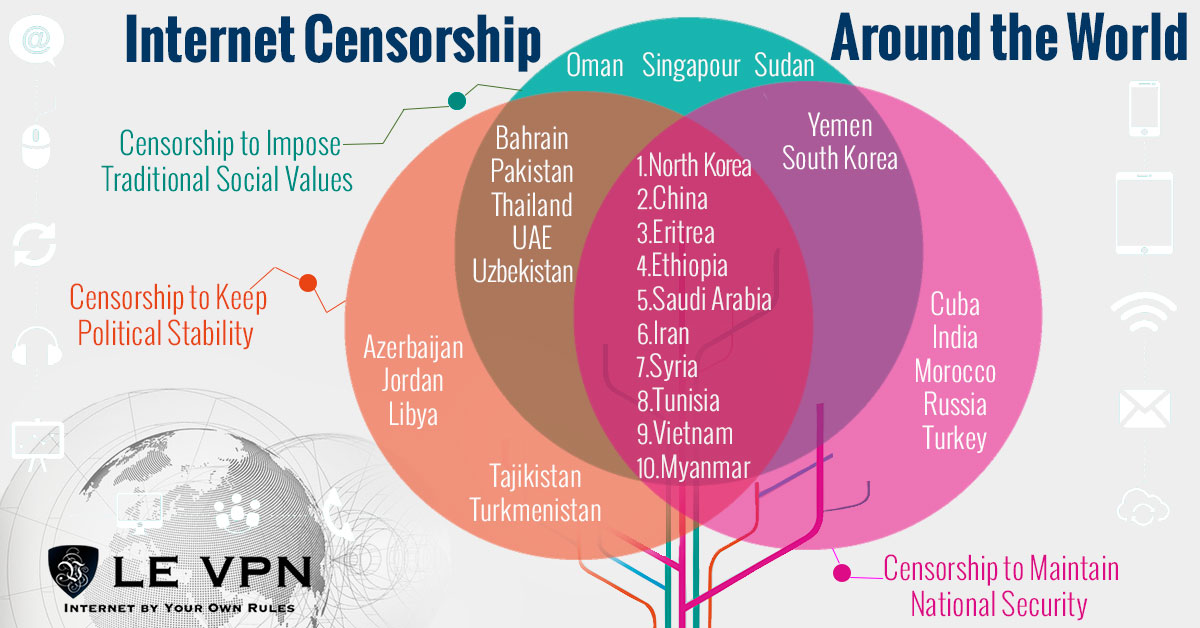Internet Censorship in Syria
Internet censorship in Syria is extensive. Citizens, journalists and activists in the country report pervasive surveillance and restricted access to sites that are political, social or religious in nature. Cyberattacks are also commonplace, and both pro-government and ISIS-affiliated hacking squads are active. Control over the Internet is used as a weapon of war — intentional blackouts, used to temporarily disable communications networks set up by rebel fighters, are frequent.

All of the above make Syria one of the worst countries for internet censorship and accessibility. Independent watchdog organization Freedom House has noted that “Syrian cyberspace remains fraught with conflict, often mirroring the brutality of the war on the ground.”
Background and Context
Syria’s descent into outright civil war has been one of the most tragic long-term effects of the 2011 Arab Spring uprisings. Part of the reason why the conflict has been so difficult to resolve is the sheer complexity of it. Even a cursory overview of the various factions vying for power at the regional and national levels would be well beyond the scope of this article.
However, even prior to the onset of war, internet censorship in Syria was commonplace. In the past, sites such as Facebook, Wikipedia, YouTube and Twitter have all been filtered. Dissident bloggers and citizen journalists were frequently harassed and arrested, while broad and excessively punitive laws forced everyday web users to self-police their online activity.
In the spring of 2011, as uprisings against the Assad government reached a groundswell, internet censorship intensified. In addition to increased monitoring and filtering of websites, laptops and mobile phones are frequently confiscated and satellite data connections have been used to target bombings against opposition media centers.
Censorship in Syria Today
Internet censorship in Syria today can be divided into three main issues:
The situation on the ground in Syria is far from stable, and a speedy resolution to the conflict seems unlikely. As the war evolves, restrictions on Internet use in the country are likely to continue. As always, the Le VPN team will endeavor to keep our users in the region apprised of the situation and up-to-date on the best ways to protect themselves.
SUMMER SALE
First 3 years for $2.22/mo
NO LOGS
SERVERS IN 100+ LOCATIONS
P2P ALLOWED
Easy To Use
30-Day Money Back
Friendly Support
Bitcoin Accepted
Ultra High Speeds


